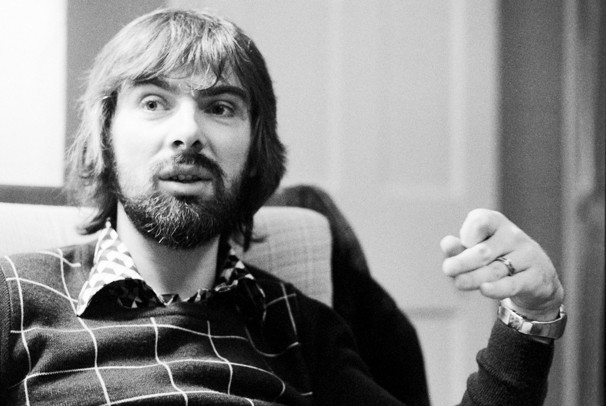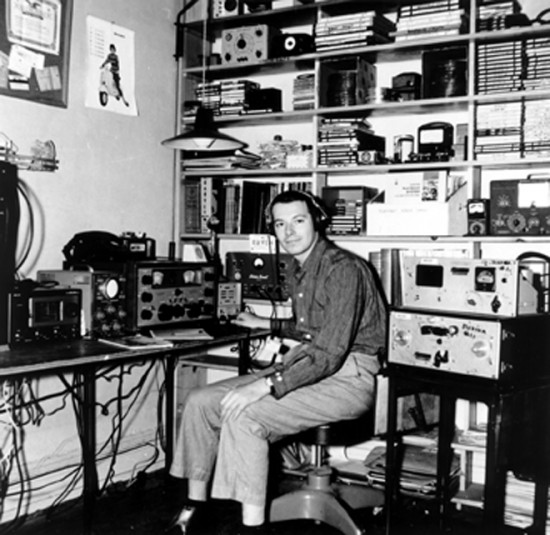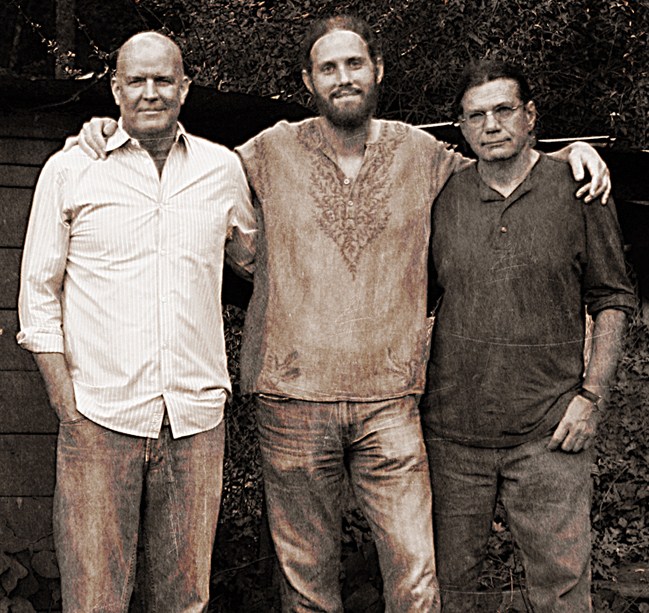Keyboard player Jim Peterman continues to talk to Nick Warburton about his time with The Steve Miller Band and recording the landmark albums, Children of The Future and Sailor.
Q) I must ask you about the Children of The Future sessions. It’s a really fascinating album. The first side feels like it was put together very much in the studio while the second side sounds more reflective of your live act. Would that be a fair assessment?
Exactly right. That connecting [between the tracks on the first side]; that was Steve’s concept. We all got in on it. I thought that was a really good piece of work.
[tubepress video=”7wWo6XPX70s”]
Q) You had a really big part in co-writing with Steve the track – ‘In My First Mind’. Your mellotron work on there is sublime.
Well thank you. Those [keyboard] changes were something that had come to me about a month or so before we were in London. I’ve never been much of a writer but I am good at embellishing what somebody else has got. That’s my strength, I’d say. I played these interesting changes for “In My First Mind” at one of the down times in the sessions and Steve got really excited about that. I thought the mellotron was way cool as an instrument.
[tubepress video=”_DYrMoS5g-c”]
Q) Were there any session leftovers that didn’t make it on to the album?
I think there was one but I can’t remember what it was. There was one, maybe even two. They would have been bluesier I think and probably didn’t get finished off. I think we had a group decision to see where we were with stuff. How did we feel about stuff? I don’t think it was anything that was finished that got left off.
Q) It sounds like as a band you had a good working relationship with Glyn Johns?
Oh yeah. One he was a rock star and very much the rock star. He was very easy going and very casual. All very British. We talked about it before we went [to England] and we didn’t want someone to make [the album] what they thought it should sound like. We wanted to make sure that we were keeping the reins but that Glyn would be welcome to be a part of it and that got established pretty easily. We had a couple of things along the way where he had to straighten us out. We were wasting some time. He was very diplomatic. Then his brother Andy got involved, just helping with technical stuff. We met him and liked him. He was way cool. It was a very productive time.
Glyn JohnsOne of the coolest things about those sessions [at Olympic], aside from that, was that Joe Cocker was doing “With A Little Help From My Friends” in studio B. It was Jimmy Page [on guitar]; I didn’t know who he was. These guys are in there and I think he was doing vocals the two times I was in there. God it was just delightful. Joe Cocker had these really tall cans of beer and he was on the stool doing the vocal takes and he swayed about as much on the stool as when he stands up. We were all taking bets on whether he could make it through the session without falling on his ear. What a singer! He sounded a lot like Ray Charles.
Q) By the sounds of it there doesn’t seem to have been much tension in the band when you were doing Children of The Future but when you came to do Sailor it became clear to you and Boz especially that you wouldn’t be staying in the group much longer. Is that right?
I think so. It became business and not friends in a band anymore. People were just putting up with Steve. There wasn’t much confrontation. I’m not one for confrontation. But the fun that we had for the first album just wasn’t there for the second. I think the music was as strong. But it didn’t have that little personality to it that the first one had to it. I think that was gone by that time.
Q) Tell me about your song “Lucky Man” because you contributed that to the second album.
I wrote it when I was there [in the studio]. It was at Wally Heider’s in Los Angeles. I just woke up and decided that if I was going to have a song, and everyone else is having a song… I’d never been a writer but I got the lick, that piano rhythm riff sort of thing and then put the lyrics together. I never thought it was a strong song and it was nice that it got on [the album] because it was my song.
Stephen Stills was doing his solo album at that time. There was an organ in there and I asked whose that was and they said it was Stephen Stills’s and he was working on his album. We had seen him with Buffalo Springfield right before that.
We stayed for part of that [Sailor album session] at the Chateau Marmont. It was kind of on the skids at that point so it wasn’t a high dollar deal. We had some money at that point. We were rising pop stars after all! Then we rented somewhere up in the hills for the rest of it. We came down in two different sessions to do it [the album] more or less; maybe a week one time and a week another time.
[tubepress video=”cEpILrTdkZo”]
Q) I read somewhere that Boz recorded his parts separately to Steve. Is that correct or did you all record at the same time as a band?
That makes me think of something. It’s interesting because I really just forgot about some stuff. Actually, there are maybe two or three songs I think – my song “Lucky Man”, Boz’s “Dime a Dance Romance”; at least one of his or maybe even both…there was some time when we were recording without Steve there because we felt stronger about playing it without him being there. You know, his being there would change our songs because of him wanting to be directive. We were having fun just the four of us together and we weren’t having fun with Steve. I think we did do two or three or four songs without Steve and I don’t remember how that got orchestrated to not offend someone or maybe we didn’t care at that point. Steve added his parts on later.
[tubepress video=”hsd949VIAhY”]
Q) Did Boz leave before you or was it at the same time?
No, it was about the same time. He stayed in San Francisco and I went back to the Midwest. I had a baby in August 1968 and that’s where we felt we were going to be comfortable.
Q) I do believe that you auditioned for HP Lovecraft to replace Dave Michaels?
Yes, that’s right. There were three people involved. The band had kind of broken up or was restructuring. I think they were revamping their sound. The keyboard player [Dave Michaels] had left and I think somebody else had left. We got together and we played. It went well but in my mind I was feeling I really needed to go back to the Midwest.
HP Lovecraft, early 1968, before Jim Peterman auditioned



